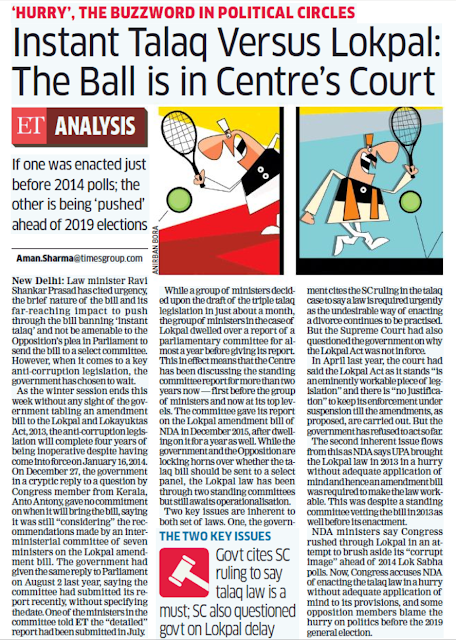Nearly 3 decades ago, on December 6, 1992, a long-running dispute between Hindus and Muslims over a religious site in the northern city of Ayodhya took a dramatic turn (Babri Masjid demolished) and changed the course of Indian politics forever. Religious riots erupted, and 900 people, both Muslims and Hindus, were killed in Mumbai. And on March 12, 1993, 13 blasts ripped through the Mumbai city in retaliation for the mosque’s demolition, killing 317. Now, a verdict from the Supreme Court (on Nov 9, 2019) has legally closed the most divisive religious conflict and paved the way for the construction of a Hindu temple at the site. The court has insisted that a mosque also be built, but on an alternative plot of land. This SC decision will allow the BJP and Modi government to bolster its political fortunes further by construction of a grand Ram temple just ahead of elections in Uttar Pradesh due in March 2022.
- Real closure of the conflict will depend on how, going forward, India treats its more than 175 million Muslim citizens. Anything other than equitable justice will only leave deep scars and gaping wounds.
- Since there has been no violence and protests, we should not mistake this for indifference. But this doesn't entail Muslims accepting the construction of a Ram temple at the site. The court has said that the demolition of the mosque was “a serious violation of the rule of law” and that “it is necessary to provide restitution to the Muslim community for the unlawful destruction of their place of worship.” Justice in the Babri masjid demolition case is critical to Indian democracy’s promise of fair play and equality.
- In the 2019 election, BJP fielded only seven Muslim candidates. In the 2017 assembly elections in Uttar Pradesh, where the temple will be built and has 19.3% Muslims (about 4.40 crores), the BJP did not field any Muslim candidates. India owes it to Muslim citizens to address this sense of political marginalization.
- It was the Muslims who suffered the razing of their place of worship; they were also the victims of the violence which followed. The community sought redressal and placed its faith in the institutions for justice. The Supreme Court ruling is riddled with contradictions but its biggest problem is the loss of faith it has triggered among Muslims about the possibility of justice. What can be worse for a democracy when its largest minority group does not hope for justice but fearfully settles for a verdict that they know is no less than injustice to them? -- Arfa Khanum Sherwani writes in thewire.in
- Whatever the provocation from Pakistan and whatever the indignities and horrors inflicted on non-Muslims there, we have to deal with this minority [India’s Muslims] in a civilized manner. If we fail to do so, we shall have a festering sore. -- Jawaharlal Nehru
If Babri Masjid was still standing, would SC have had it demolished?
-- Justice A.K. Ganguly (Retd Judge of Supreme Court)
The PM Modi's appeal for harmony, on the eve of the Ayodhya verdict, and warning against seeing the outcome as a victory or defeat for either side casts doubts about his prior knowledge and influencing the judgement. Muslims may grudgingly and helplessly accept this verdict with a pinch of salt but in the reverse scenario, Hindu groups (RSS, VHP etc) would definitely have pressurized central government to promulgate ordinance allotting Babri Masjid plot for Ram Janmabhoomi temple construction.



















